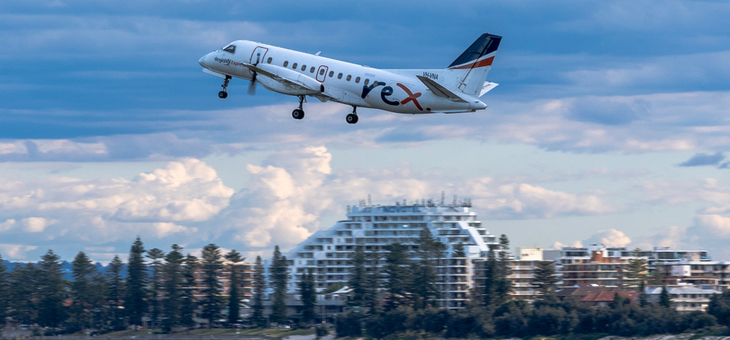The future of Rex Airlines hangs in the balance. As it seeks new ownership, the regional carrier must navigate an increasingly competitive market while ensuring it remains a key player in Australian aviation. What comes next could reshape the industry.
The well-known regional carrier is at a pivotal moment, with its future direction depending on whether private investors step in.
You May Like
‘The collapse of Rex … endangers access of these regional communities throughout Australia to our capital cities and to the connectivity that is so vital for the quality of life, so vital for these local economies as well,’ Prime Minister Anthony Albanese told reporters.
In a move that could dramatically alter the landscape of Australian aviation, the federal government has signalled its readiness to nationalise Rex Airlines if a private sector buyer does not emerge.
This unprecedented step underscores the critical importance of regional connectivity and the lengths to which the government is willing to go to preserve it.
Prime Minister Albanese has made it clear that the government’s priority is to find a buyer who is committed to serving regional communities, ensuring value for money, and upholding good governance. The search for a suitable buyer comes after Rex fell into voluntary administration in mid-2024, marking the second attempt to sell the airline.
The potential nationalisation of the regional carrier would be a historic event, marking the first time in three decades that the Australian government has owned an airline since the privatisation of Qantas in 1995.
This bold move reflects a broader trend of government intervention in the aviation sector worldwide, where airlines often receive support due to their vital role in national and regional economies.
During the previous coalition government, Rex benefited from substantial Commonwealth support, including JobKeeper payments and direct funds. However, Prime Minister Albanese has criticised the lack of conditions attached to these payments, which he believes led Rex to overextend itself by expanding into capital city routes, resulting in the current ‘financial mess.’
Federal Transport Minister Catherine King emphasised the importance of Rex’s continued operation, noting that the airline services 41 different routes weekly, with 22 of those being the sole option for communities to access essential services and economic opportunities.
The government’s commitment to regional connectivity is further demonstrated by its guarantee of Rex’s regional flight slots at Sydney Airport until October 2026.
After acquiring $50 million of debt from the airline’s largest creditor and providing a loan of up to $80 million to ensure the continuation of regional routes until the end of June, the government’s involvement in Rex’s future became more pronounced.
These actions have sparked debate over the role of government in the aviation industry, with Deputy opposition leader Sussan Ley criticising the move and arguing that government ownership of airlines ultimately burdens taxpayers.
‘Governments shouldn’t own airlines because that means that taxpayers own them and taxpayers pay for them,’ she told Sky News.
Despite such criticisms, Prime Minister Albanese has defended the government’s potential intervention, citing international examples like Air New Zealand, which is majority-owned by the government, and other airlines that have received bailouts or are connected with their governments.
‘There’s a reason for that, because aviation plays a critical role in communities,’ he said, explaining the government’s stance.
The Transport Workers’ Union has also welcomed the possibility of nationalising Rex, viewing it as a significant step toward building an aviation industry that serves the ‘public good’ rather than corporate interests.
National secretary Michael Kaine hailed the announcement as ‘a huge moment for the aviation industry.’
In addition to addressing the immediate concerns with Rex, the government is investing $12 million to upgrade regional airports across New South Wales, including significant investments in Merimbula, Albury, Mudgee, Griffith, and Moree airports.
As the situation with Rex Airlines unfolds, the future of regional air travel in Australia hangs in the balance.
We invite our readers to share their thoughts on this development. How do you feel about the potential nationalisation of Rex Airlines? Join the conversation and share your perspective with the YourLifeChoices community.
Also read: Explosive allegations rock Rex Airlines

